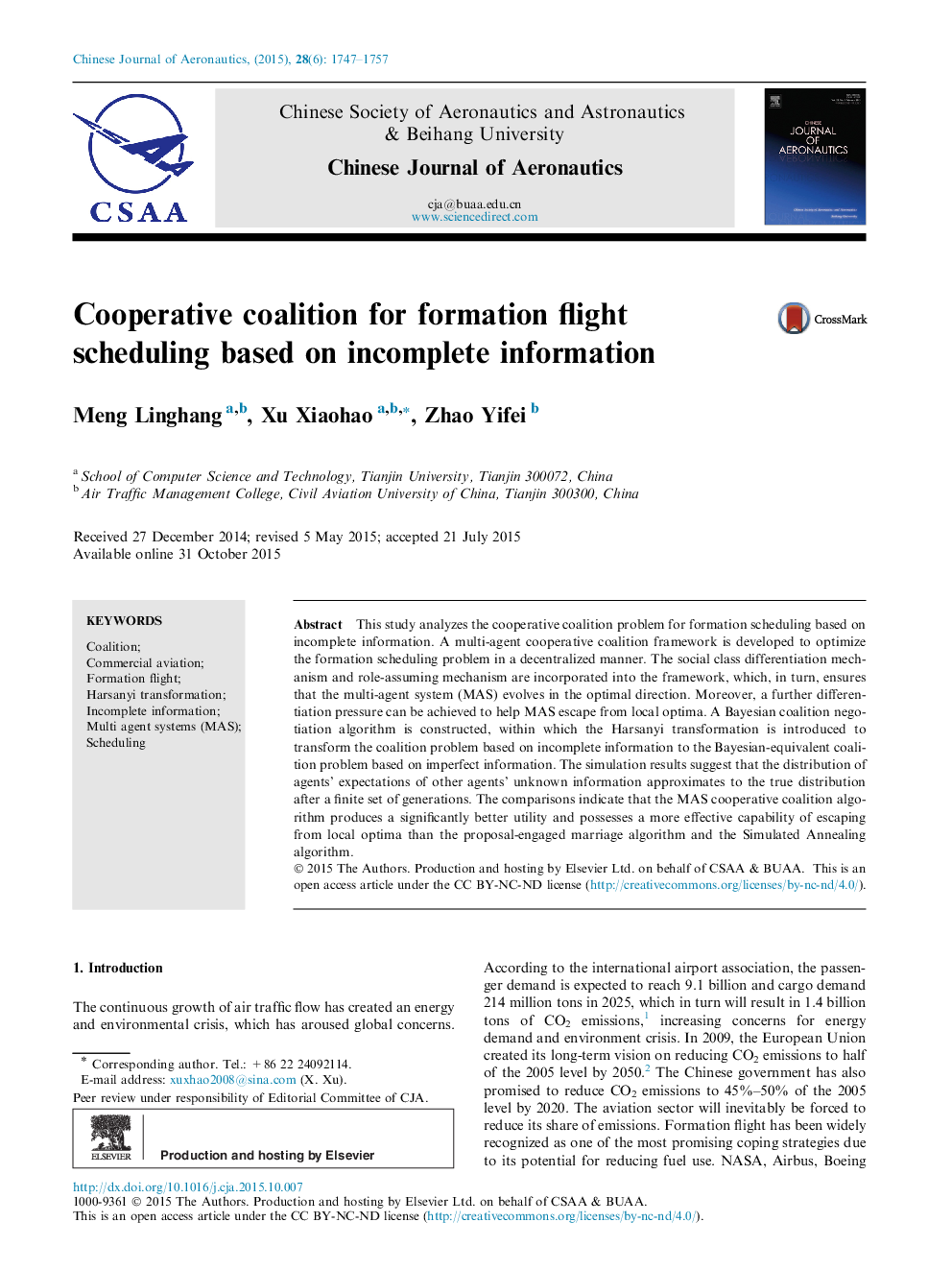| Article ID | Journal | Published Year | Pages | File Type |
|---|---|---|---|---|
| 757173 | Chinese Journal of Aeronautics | 2015 | 11 Pages |
This study analyzes the cooperative coalition problem for formation scheduling based on incomplete information. A multi-agent cooperative coalition framework is developed to optimize the formation scheduling problem in a decentralized manner. The social class differentiation mechanism and role-assuming mechanism are incorporated into the framework, which, in turn, ensures that the multi-agent system (MAS) evolves in the optimal direction. Moreover, a further differentiation pressure can be achieved to help MAS escape from local optima. A Bayesian coalition negotiation algorithm is constructed, within which the Harsanyi transformation is introduced to transform the coalition problem based on incomplete information to the Bayesian-equivalent coalition problem based on imperfect information. The simulation results suggest that the distribution of agents’ expectations of other agents’ unknown information approximates to the true distribution after a finite set of generations. The comparisons indicate that the MAS cooperative coalition algorithm produces a significantly better utility and possesses a more effective capability of escaping from local optima than the proposal-engaged marriage algorithm and the Simulated Annealing algorithm.
